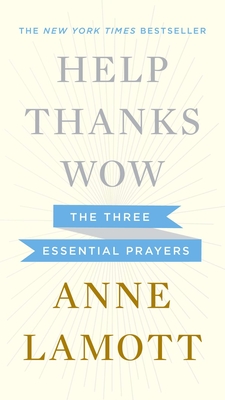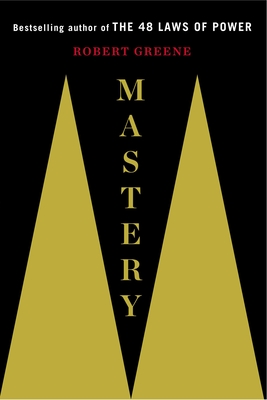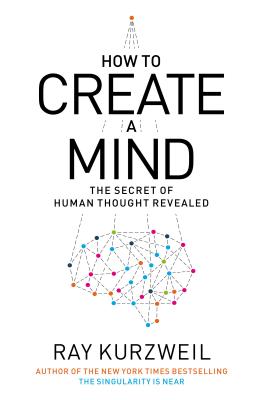The contrarian historian and analyst upends the conventional reading of the American Revolution
In 1775, iconoclastic historian and bestselling author Kevin Phillips punctures the myth that 1776 was the watershed year of the American Revolution. He suggests that the great events and confrontations of 1775—Congress’s belligerent economic ultimatums to Britain, New England’s rage militaire, the exodus of British troops and expulsion of royal governors up and down the seaboard, and the new provincial congresses and hundreds of local committees that quickly reconstituted local authority in Patriot hands—achieved a sweeping Patriot control of territory and local government that Britain was never able to overcome. These each added to the Revolution’s essential momentum so when the British finally attacked in great strength the following year, they could not regain the control they had lost in 1775.
Analyzing the political climate, economic structures, and military preparations, as well as the roles of ethnicity, religion, and class, Phillips tackles the eighteenth century with the same skill and insights he has shown in analyzing contemporary politics and economics. The result is a dramatic narrative brimming with original insights. 1775 revolutionizes our understanding of America’s origins.
New York Times-bestselling author Anne Lamott writes about the three simple prayers essential to coming through tough times, difficult days and the hardships of daily life.
Readers of all ages have followed and cherished Anne Lamott’s funny and perceptive writing about her own faith through decades of trial and error. And in her new book, Help, Thanks, Wow, she has coalesced everything she knows about prayer to these fundamentals.
It is these three prayers – asking for assistance from a higher power, appreciating what we have that is good, and feeling awe at the world around us – that can get us through the day and can show us the way forward. In Help, Thanks, Wow, Lamott recounts how she came to these insights, explains what they mean to her and how they have helped, and explores how others have embraced these same ideas.
Insightful and honest as only Anne Lamott can be, Help, Thanks, Wow is the everyday faith book that new Lamott readers will love and longtime Lamott fans will treasure.
The eagerly anticipated new book from the author of the bestselling The 48 Laws of Power
What did Charles Darwin, middling schoolboy and underachieving second son, do to become one of the earliest and greatest naturalists the world has known? What were the similar choices made by Mozart and by Caesar Rodriguez, the U.S. Air Force’s last ace fighter pilot? In Mastery, Robert Greene’s fifth book, he mines the biographies of great historical figures for clues about gaining control over our own lives and destinies. Picking up where The 48 Laws of Power left off, Greene culls years of research and original interviews to blend historical anecdote and psychological insight, distilling the universal ingredients of the world’s masters.
Temple Grandin, Martha Graham, Henry Ford, Buckminster Fuller—all have lessons to offer about how the love for doing one thing exceptionally well can lead to mastery. Yet the secret, Greene maintains, is already in our heads. Debunking long-held cultural myths, he demonstrates just how we, as humans, are hardwired for achievement and supremacy. Fans of Greene’s earlier work and Malcolm Gladwell’s Outliers will eagerly devour this canny and erudite explanation of just what it takes to be great.
The bold futurist and bestselling author explores the limitless potential of reverse-engineering the human brain
Ray Kurzweil is arguably today’s most influential—and often controversial—futurist. In How to Create a Mind, Kurzweil presents a provocative exploration of the most important project in human-machine civilization—reverse engineering the brain to understand precisely how it works and using that knowledge to create even more intelligent machines.
Kurzweil discusses how the brain functions, how the mind emerges from the brain, and the implications of vastly increasing the powers of our intelligence in addressing the world’s problems. He thoughtfully examines emotional and moral intelligence and the origins of consciousness and envisions the radical possibilities of our merging with the intelligent technology we are creating.
Certain to be one of the most widely discussed and debated science books of the year, How to Create a Mind is sure to take its place alongside Kurzweil’s previous classics.
In 1775, iconoclastic historian and bestselling author Kevin Phillips punctures the myth that 1776 was the watershed year of the American Revolution. He suggests that the great events and confrontations of 1775—Congress’s belligerent economic ultimatums to Britain, New England’s rage militaire, the exodus of British troops and expulsion of royal governors up and down the seaboard, and the new provincial congresses and hundreds of local committees that quickly reconstituted local authority in Patriot hands—achieved a sweeping Patriot control of territory and local government that Britain was never able to overcome. These each added to the Revolution’s essential momentum so when the British finally attacked in great strength the following year, they could not regain the control they had lost in 1775.
Analyzing the political climate, economic structures, and military preparations, as well as the roles of ethnicity, religion, and class, Phillips tackles the eighteenth century with the same skill and insights he has shown in analyzing contemporary politics and economics. The result is a dramatic narrative brimming with original insights. 1775 revolutionizes our understanding of America’s origins.
New York Times-bestselling author Anne Lamott writes about the three simple prayers essential to coming through tough times, difficult days and the hardships of daily life.
Readers of all ages have followed and cherished Anne Lamott’s funny and perceptive writing about her own faith through decades of trial and error. And in her new book, Help, Thanks, Wow, she has coalesced everything she knows about prayer to these fundamentals.
It is these three prayers – asking for assistance from a higher power, appreciating what we have that is good, and feeling awe at the world around us – that can get us through the day and can show us the way forward. In Help, Thanks, Wow, Lamott recounts how she came to these insights, explains what they mean to her and how they have helped, and explores how others have embraced these same ideas.
Insightful and honest as only Anne Lamott can be, Help, Thanks, Wow is the everyday faith book that new Lamott readers will love and longtime Lamott fans will treasure.
The eagerly anticipated new book from the author of the bestselling The 48 Laws of Power
What did Charles Darwin, middling schoolboy and underachieving second son, do to become one of the earliest and greatest naturalists the world has known? What were the similar choices made by Mozart and by Caesar Rodriguez, the U.S. Air Force’s last ace fighter pilot? In Mastery, Robert Greene’s fifth book, he mines the biographies of great historical figures for clues about gaining control over our own lives and destinies. Picking up where The 48 Laws of Power left off, Greene culls years of research and original interviews to blend historical anecdote and psychological insight, distilling the universal ingredients of the world’s masters.
Temple Grandin, Martha Graham, Henry Ford, Buckminster Fuller—all have lessons to offer about how the love for doing one thing exceptionally well can lead to mastery. Yet the secret, Greene maintains, is already in our heads. Debunking long-held cultural myths, he demonstrates just how we, as humans, are hardwired for achievement and supremacy. Fans of Greene’s earlier work and Malcolm Gladwell’s Outliers will eagerly devour this canny and erudite explanation of just what it takes to be great.
The bold futurist and bestselling author explores the limitless potential of reverse-engineering the human brain
Ray Kurzweil is arguably today’s most influential—and often controversial—futurist. In How to Create a Mind, Kurzweil presents a provocative exploration of the most important project in human-machine civilization—reverse engineering the brain to understand precisely how it works and using that knowledge to create even more intelligent machines.
Kurzweil discusses how the brain functions, how the mind emerges from the brain, and the implications of vastly increasing the powers of our intelligence in addressing the world’s problems. He thoughtfully examines emotional and moral intelligence and the origins of consciousness and envisions the radical possibilities of our merging with the intelligent technology we are creating.
Certain to be one of the most widely discussed and debated science books of the year, How to Create a Mind is sure to take its place alongside Kurzweil’s previous classics.




No comments:
Post a Comment